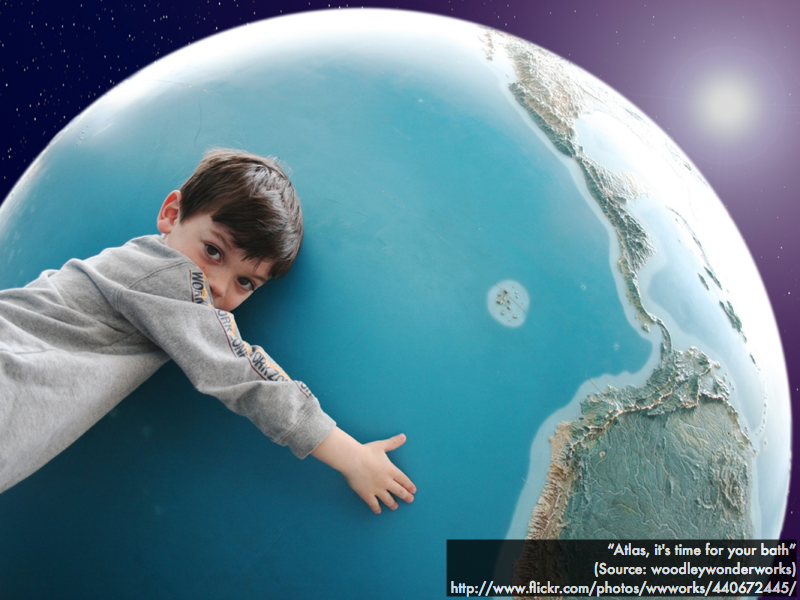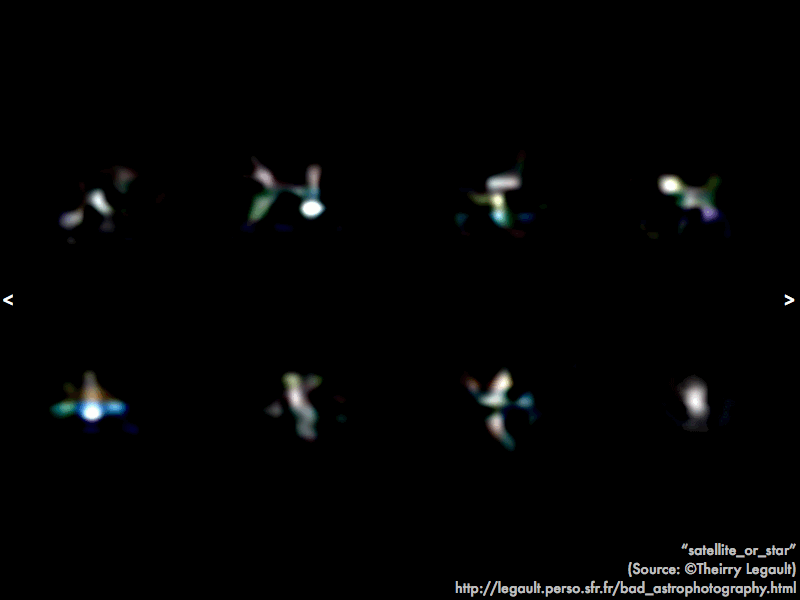Cuesta College, San Luis Obispo, CA
Students have a weekly online reading assignment (hosted by SurveyMonkey.com), where they answer questions based on reading their textbook, material covered in previous lectures, opinion questions, and/or asking (anonymous) questions or making (anonymous) comments. Full credit is given for completing the online reading assignment before next week's lecture, regardless if whether their answers are correct/incorrect. Selected results/questions/comments are addressed by the instructor at the start of the following lecture.
The following questions were asked on reading textbook chapters and previewing presentations on problems caused by the atmosphere for telescope observing, Earth, and the impacted worlds: the moon, and Mercury.

Selected/edited responses are given below.
Describe something you found interesting from the assigned textbook reading or presentation preview, and explain why this was personally interesting for you.
"That the moon can be thought of as a piece of Earth's debris because it is hypothesized that an object smashed into protoearth, causing a piece of it to break off."
"Dark skies--I hate light pollution because I love being able to see stars."
"How turbulence can actually affect the telescope images of space. Isn't air supposed to be invisible? Guess not!"
"Craters on different types of asteroids and planets interesting--I didn't know there was an order to when features appeared."
"First, that the mountains are a relatively new developments on Earth. Secondly that the green house effect is not entirely a bad thing, since with out it the planet would be freezing."
"The cycle of carbon dioxide through the Earth's atmosphere. I thought that carbon dioxide entered the atmosphere through plants."
"I thought the concept of light pollution was distressing. It's sad to think that modern civilization has kept humans from seeing the natural beauty in the world."
"Visualizing the different wavelength sizes and how they are constantly around us is a trippy thought. It's interesting to me because I wonder with all the electronics we have nowadays if this cocktail of different waveengths affects us mentally somehow but we are unaware of it. I also forgot that sound waves can't travel through space. Cool!"
Describe something you found confusing from the assigned textbook reading or presentation preview, and explain why this was personally confusing for you.
"I still don't understand how we can measure a planet's core without going into there."
"Would you explain the history of the moon/Mercury in simpler terms? I found the text to be wordy and kind of confusing."
"How we know so much about Mercury and those other further planets when we have never been to them. Also, I realize that we have advanced technology but I am confused how we can not only have a devise find the planets, but also how they are so clear and visible. And how do we know how large the moon and Mercury’s core is?"
"Adaptive optics--I don't understand how the computer can warp the image to make it the actual shape after turbulance from the atmosphere. "
 Stars to appear to "twinkle" in the night sky because of:
Stars to appear to "twinkle" in the night sky because of: "Because you are looking through the earth's atmosphere to see the star, turbulence from the air in this atmosphere will blur and distort the stars' image making it appear to twinkle."
"Because its traveling through time and air, so we are seeing it as it comes through those."
"Stars are twinkling in the sky because there is so much air between the star were seeing and where we are that the stars seem to twinkle."
A large modern optical telescope in outer space would have images with better __________ than a comparable ground-based telescope.
brightness. *** [3] resolution. *************** [15] magnification. [0] (None of the above choices.) ** [2] (Two of the above choices.) ************ [12] (All of the above choices.) ************ [12] (Unsure/guessing/lost/help!) *** [3]
Identify how carbon dioxide enters and how it is taken out of Earth's atmosphere.
(Only correct responses shown.)
Enters atmosphere from: volcanoes [45%]
Taken out of atmosphere by: oceans [43%]
Identify the oldest (longest ago) to the youngest (most recent) features on the moon.
(Only correct responses shown.)
Craters partially filled in with flat lava plains: oldest (formed longest ago) [34%]
Flat lava plains: middle [21%]
Craters on top of flat lava plains: youngest (formed most recently) [43%]
Identify the oldest (longest ago) to the youngest (most recent) features on Mercury.
(Only correct responses shown.)
Large crater basins: oldest (formed longest ago) [60%]
Lava-filled lowlands: middle [36%]
Long curving ridges: youngest (formed most recently) [45%]
Ask the instructor an anonymous question, or make a comment. Selected questions/comments may be discussed in class.
"Was curious what the greenish color is at the end of the International Space Station video." (That's the aurora borealis, when charged particles streaming from the sun slam into Earth's upper atmosphere, making it glow certain colors. Same principle as using electricity to zap atoms in a neon sign to make them glow a certain color.)
"There was a lot of information in these sections and I don't know what the important things to know are." (Primarily the material in the flashcard question packets, and the in-class activities. The presentation slides are meant to fill in details that the textbook doesn't cover.)
"I love you." (No, you just love astronomy. You do love astronomy, right? RIGHT? #wut)
"I went to Big Sur for the first time this weekend and slept under that stars! No light pollution there! The night sky was incredible and I was probably a little obnoxious with my star facts but being able to see everything so clear got me excited!" (Whoa there, calm down. That's just the astronomy love, talking.)
"The best thing said in the presentation preview: 'We are all caretakers for our planet, so let's make sure to read the owner's manual.'" (And in the owner's manual, it says, "If you break it, you own it.")
"If Earth's oceans are absorbing carbon pollution does that mean if we stopped producing man-made greenhouse gases, in time the world would restore itself?" (Theoretically, yes, but we'll just have to find out for ourselves what will eventually happen, depending on what we do. Let's all read that owner's manual again.)


No comments:
Post a Comment